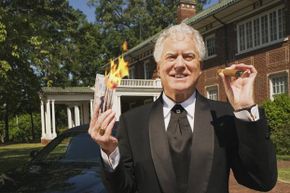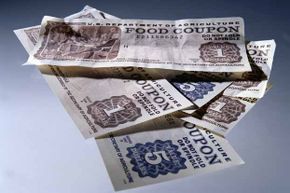Walk into my kitchen while I'm fixing dinner any given weeknight and you'll hear "If I had a million dollars" blaring from the stereo. I've been known to chirp along to my favorite CD by Barenaked Ladies while shelling peas or blanching tomatoes: "If I had a million dollars ... I would buy you a house ... I'd build a tree fort in our yard ... I'd buy you a monkey ... If I had a million dollars ...
"I'd be rich."
Advertisement
While our lists might be different, we all have one, don't we? We've all dreamt of what we'd buy (or do) if we had sudden, overwhelming riches. We certainly wouldn't squander it like the lottery burnouts we've profiled for this article.
Or would we? According to a study published by the University of Kentucky in conjunction with the University of Pittsburgh and Vanderbilt University Law School, lottery winners declare bankruptcy at twice the rate of the general population.
Why is this? The inability to squirrel away an unexpected windfall appears to be rooted deep in the human psyche. Money arriving by luck or circumstance is simply easier to spend than money earned through hard work. It's like finding a $20 bill on the sidewalk and splurging at your favorite coffee shop. The researchers also found that lottery winners tended to have below-average education and income, which might translate into lower financial literacy than the average not-that-financially-savvy person. Here are profiles of 10 lottery winners who won big and fell hard.










